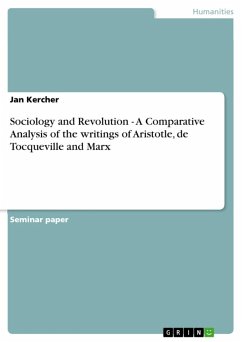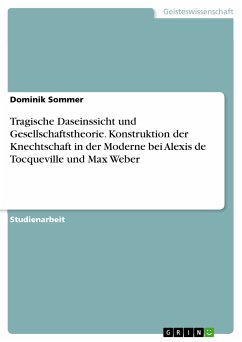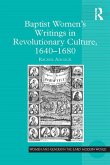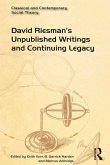Seminar paper from the year 2004 in the subject Sociology - Classics and Theoretical Directions, grade: A (87%), University of British Columbia (Department of Anthropology and Sociology), course: Classical Sociological Theory, language: English, abstract: Long before sociology became established as a distinct discipline of the social sciences, scholars have studied the social causes of revolution. Aristotle dedicated one whole book of his Politics to the sources and possible remedies of revolutions, Alexis de Tocqueville named one of the most famous chapters of his Democracy in America "Why great revolutions will become rare", and Karl Marx wrote nearly all his works under the notion of an inevitable revolution of the proletariat. So what are the differences and similarities in analyses of these three famous writers? To answer this question, I will introduce the relevant theses of every writer and compare those theses along different dimensions. The first and most basic variable is the group of people that is addressed by the writer. This, in turn, has important consequences for another variable: How is revolution evaluated? Should it be prevented? If yes, how? Answering these questions will help us to define the causes for revolutions given by the three authors. As a last step, I will analyse how revolution and democracy relate in these theories. I hope that, as a result, we will get a helpful insight in an important aspect of the writings of these three great scholars of sociology.
Dieser Download kann aus rechtlichen Gründen nur mit Rechnungsadresse in A, B, BG, CY, CZ, D, DK, EW, E, FIN, F, GR, HR, H, IRL, I, LT, L, LR, M, NL, PL, P, R, S, SLO, SK ausgeliefert werden.









